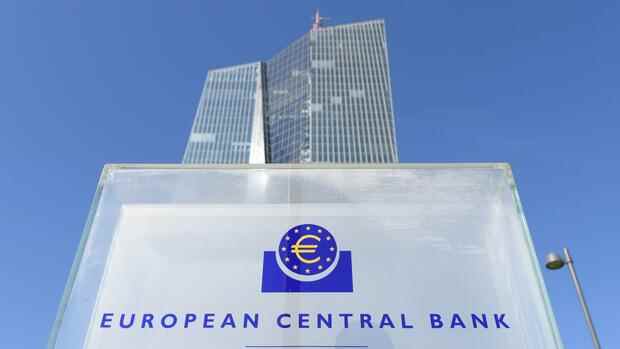Now she has to decide: will she keep this flexibility in the future? Or is it going back to its old rules, which aim at a greater separation of monetary and financial policy? The concern that the wrong decision will be made here contributed to Jens Weidmann’s departure as Bundesbank President.
It would make sense to get out of crisis policy, as Weidmann has repeatedly called for. And there is a clear way of doing this.
First of all: the flexibility in the pandemic was justified. There was a risk that individual countries could get into trouble through no fault of their own. This is exactly what the ECB prevented with its particularly flexible purchase program.
Now, however, some ECB representatives like the Italian central bank chief Ignazio Visco and his French counterpart François Villeroy de Galhau want to retain some of the additional flexibility.
There are several options for this: the timing of the purchases without a fixed scheme; a higher weighting of individual countries than would be possible according to the capital key, which depends on the economic strength and population size of the euro countries; or even more leeway with the upper limits for purchases per country.
All of these points are tempting. With more flexibility, the yield spreads between the euro countries could be further limited and the cohesion of the monetary union more secure. In addition, it would probably allow the ECB to achieve its goal of maintaining favorable financing conditions with less effort.
Nevertheless, before the introduction of PEPP, there were fixed limits for which there are still good arguments. They should be heeded again in the future. Ultimately, it is a matter of limiting the already great influence of the central banks on the markets and politics and thus also protecting their independence.
It is important that the markets are transparent and that their steering function is maintained. More importantly, the central banks do not become agents of governments. Therefore, after the emergency situation, the clearest possible situation should be created.
The head of the ECB and her colleagues will soon decide on the future of the ECB’s bond purchases.
(Photo: imago images / Xinhua)
The conditions for an end to the crisis policy are favorable. Italy, which has long been considered particularly vulnerable in the euro zone, has significantly improved its reputation on the markets. Thanks to Prime Minister Mario Draghi’s reform policy, yields have fallen particularly sharply there.
They are low elsewhere too. If the financing costs of a euro country rise so much that problems arise, there are also other means to help.
The ECB can also buy unlimited bonds from individual euro countries through its long-standing OMT program. However, OMT is bound by strict conditions and should therefore really only be used in exceptional cases. So even if the crisis policy expires, there is a safety net.
Central bank should avoid a cliff effect
What is the best way to get out? The PEPP crisis program will run until the end of March 2022. The cleanest solution would be to end it afterwards. However, an abrupt stop could lead to problems.
In September, for example, the monthly bond purchases amounted to around 95 billion euros, of which 75 billion were accounted for by the particularly flexible PEPP and 20 billion by the classic APP bond program. Even if the ECB slows down the PEPP buying pace in the next few months, there would likely be a major slump if purchases drop to the APP program’s previous level of € 20 billion from April onwards.
In order to avoid such a cliff effect, it would therefore make sense to increase the APP program for a short time, for example to 40 billion euros. At the same time, however, a path could already be given as to when purchases would fall back to their original level.
In addition, there are a couple of issues that the ECB should be pragmatic about. For example the question of how it deals with Greek government bonds. She bought them as part of PEPP, but is not allowed to do so in the older APP program because the rating of the papers is too bad. One way out would be for it to give preference to Greek bonds in future if it replaces paper from PEPP that is about to expire.
The ECB also never strictly adhered to the link between its bond purchases and the capital key. That was the case before the pandemic. The Baltic states, for example, have hardly borrowed and issued only a few government bonds. Accordingly, the central bank was hardly able to buy any paper there and instead bought a little more bonds from other countries. That is not a problem either: it is important that the broad line is right.
The ECB should end the crisis policy when the crisis is over. Bundesbank President Jens Weidmann is right when he says that the P in the abbreviation for the PEPP crisis program stands for the pandemic and not for “permanent”.
More: The specter of stagflation – How economists assess risk
